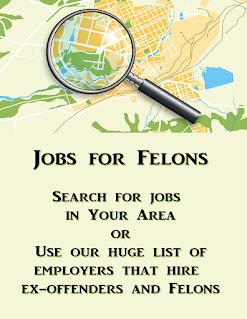J.T. Weis - The Detroit News
 |
| Picture by By https://kazan.vperemen.com/ |
After years of working in the corporate world, my desire to live a more meaningful existence continued to grow. With that in mind, entrepreneurship was the path to pursue this goal and I acquired Abcor Industries in Holland, Michigan.
Abcor has the technology for powder coating wood and is leading the drive for innovating higher performing wood materials.
Owning Abcor allows us the freedom to make decisions which improve people’s lives and drive an enterprise that contributes to the betterment of the planet. Additionally, we support important nonprofit entities, institutions and schools.
As a senior manager at publicly traded companies, I wasn’t able to deploy a felon hiring strategy — or consider anyone with a criminal history. With Abcor, we are breaking the stigmas and helping change people’s lives.
More than half of our production employees have been convicted of felonies and have served long sentences, hence repaying their debt to society. My intention is to continue to do everything possible to ensure they are productive members of a dynamic entrepreneurial company.
Productive employment is the leading force in their personal mission to build a new successful life as a responsible tax paying citizen. Productive employment is the leading factor in reducing recidivism. We are an important component of their life recovery. They are a vital part of our success.
Recently, I was invited to a forum on the subject of hiring re-entering citizens. At first, it was very encouraging to see so many human resource executives interested and open to the practice. However, each of the executives had a common theme of being only interested in “light felony” applicants. This was clearly driven by a risk mitigation approach.
Toward the end of the forum, they asked me to opine on their approach. They were surprised by my response that short sentence “light felony” applicants had a higher fallout rate and were more difficult to manage. Those who have served the longer sentences are very motivated, highly loyal and committed to the mission.
Currently, we at Abcor and other employers are urging the Legislature to pass bills currently before the state House Law and Justice Committee that would remove some barriers to employment and require objective reasons for denying parole to low-risk prisoners.
Right now, there are too many who remain incarcerated and present the lowest risk to public safety. The law requires that denying parole to people who present the lowest risk to public safety can only be based on objective reasonings. Subjective parole denial is immoral, and it’s wrong. Not only is it counter to our values, it also wastes millions of taxpayer dollars annually on keeping these low-risk prisoners locked up.
There remains much more the state of Michigan can do to help. It should continue to expand vocational training during incarceration, implement laws and financial benefits for bridging organizations that help the released find employment, housing and transportation. In my view, the Department of Corrections could and should become a powerful force by investing in these systems and have a positive impact on workforce development.
Every year, nearly 10,000 people return from prison to Michigan communities. Many are unable to find employment due to their criminal records, even though many employers face a shortage of available workers. There exists a significant opportunity to do better.
Those in position to do so, should construct systems, laws and enterprises to set the groundwork for personal recovery. There is a major win-win for society available to us all and we need to act upon it.
J.T. Weis is the owner of Abcor Industries in Holland, Michigan.
Jobs for Felons: The Facts about Companies that Hire Ex offenders and Felons
Jobs for Felons: Give former felons a chance to work
Eric Mayo

















